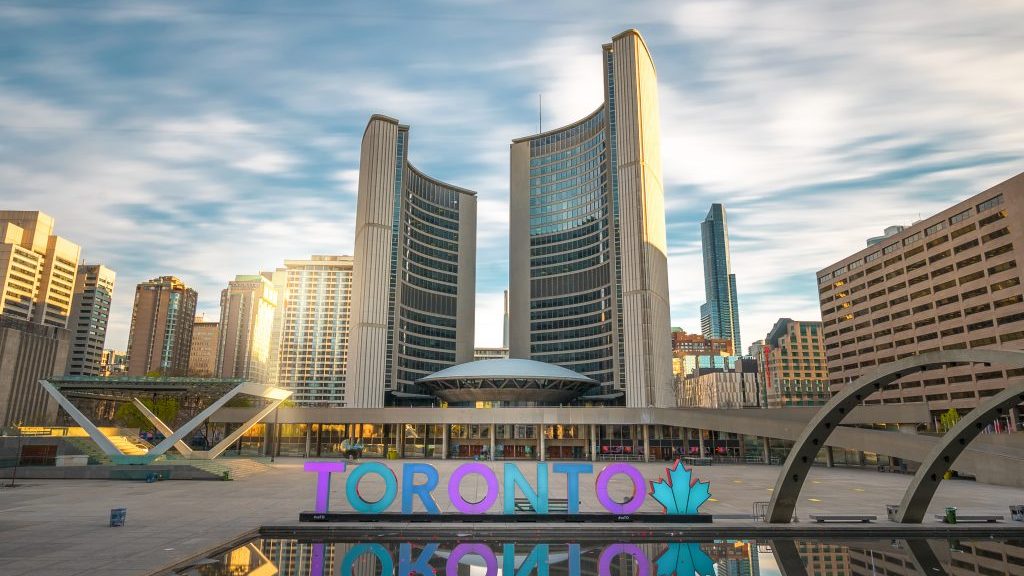Home construction stakeholders are not impressed with the threat issued by three downtown Toronto councillors that they will hold up development proposals that don’t meet previous master plan policies overthrown by the Ford government.
Councillors Joe Cressy (Ward 10, Spadina-Fort York), Mike Layton (Ward 11, University-Rosedale) and Kristyn Wong-Tam (Ward 13, Toronto Centre) announced July 18 they would adopt a red-light, green-light approach to proposed developments, with projects that did not reflect the old TOcore secondary plan created by city council “sent to the back of the line.”
The councillors are protesting decisions handed down June 5 by Ontario’s Minister of Municipal Affairs and Housing significantly revising the downtown secondary plan as well as the Yonge-Eglinton Secondary Plan. The City’s website explains the unilateral changes — there are 224 of them, according to the city — “create a more permissive environment for development, encouraging greater density and intensification around major transit station areas and key locations for growth.”
“What they did was reestablish the Wild West for developers downtown and that has put at risk the long-term livability and prosperity of not only downtown but our province as a whole,” Cressy said at a press conference. “We will stand up and fight for good development and we will stand up and fight to slow down and hinder bad development.”
I don’t think it will have that effect. I don’t think they can be taken seriously
— Richard Lyall
Residential Construction Council of Ontario
The Building Industry and Land Development Association (BILD) issued a statement saying it is “outraged” by the councillors’ stance.
“This blatant disregard of provincial policy is the opposite of a housing strategy, in fact it’s an anti-housing strategy,” said Dave Wilkes, president and CEO of BILD. “The net impact will add cost to the city, add cost to new home purchasers, increase the delays of much-needed livable housing close to transit and lengthen approvals times as challenges and appeals are undertaken to ensure that the law is respected.”
The BILD statement argued more housing is “desperately needed” to accommodate growth in the region.
“It makes sense for this type of housing to be built in places that can leverage existing investments in infrastructure and be transit supportive. We are calling on Toronto city council to take the necessary steps to address housing supply and affordability in Toronto,” said BILD.
Richard Lyall, president of the Residential Construction Council of Ontario, called the councillors’ position “childish.”
“I think most people that understand how these things work will see it for what it is — grandstanding,” he said. “Mind you, if some are looking at investments in their wards, you are going to be concerned about that.
“The process is already uncertain enough. That kind of attitudinal announcement, that we are going to mess you up, or slow things down, I don’t know how you can measure what the effect will be, but that will have an effect in that area.”
But Lyall suggested the councillors only have three votes out of 24 on council so their ability to stall proposals would be limited.
“They are only three councillors out of how many, so generally speaking, I don’t think it will have that effect. I don’t think they can be taken seriously,” he said.
“Ok, you’re mad about this but Cressy today says we have a housing crisis, and at the same time you say we’re are going to slow things down.
“That is why I called it childish, adults don’t behave like that.”
The councillors’ media statement said the provincial changes to the downtown plan remove the requirement for new developments to build or help pay for infrastructure such as water systems, community facilities and parks and restrict tools available to secure community infrastructure.
“Toronto deserves good planning that responds to the needs of neighbourhoods and local communities,” said Wong-Tam. “TOcore was intended to secure the child care, community space, libraries, affordable housing, parkland and other amenities that our neighbourhoods are severely lacking.”
The councillors said projects that do not follow the principles of TOcore will get their “red light.” Strategies for delaying red light projects could including deprioritizing those projects in their offices, applying a holding provision or denying ancillary permits like road occupations or tree removals, and also changing the time of various fee payments, they said.











Recent Comments
comments for this post are closed